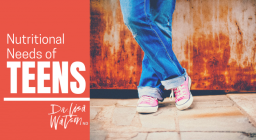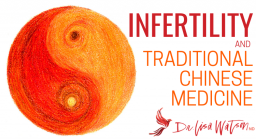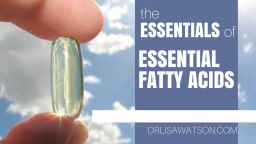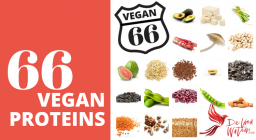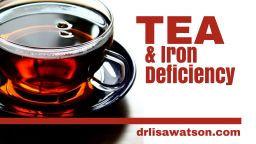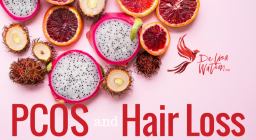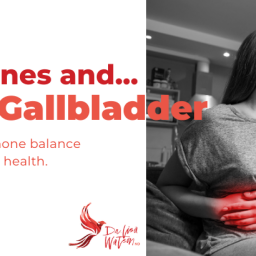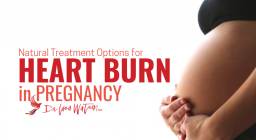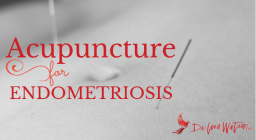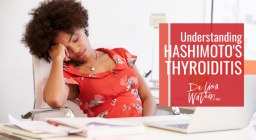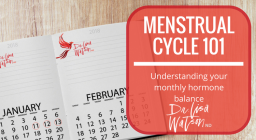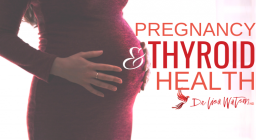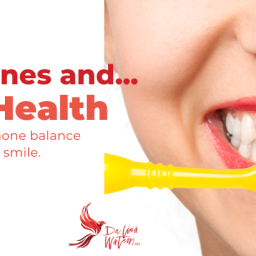
Ladies, I have no idea why it has taken me so long to write this article. I am certainly qualified, both as an expert in women’s hormones, and as a fellow “flooder”. At different times in my adult and teen years, I have had atrocious periods – heavy beyond belief, with clotting and cramping, and such crippling exhaustion.
It’s never a pleasant experience, but I can tell you this – it doesn’t have to be that way. There are reasons your period may be heavy, and many of those can be effectively treated without the birth control pill.
The Most Common Cause of Heavy Periods
Is your hormones. And heavy periods are more likely during times of hormonal flux – such as during perimenopause and during our teens.
But it’s not just reproductive hormones, like estrogen and progesterone, that can lead to heavy periods. Thyroid hormones can too. Hypothyroidism, where the thyroid is not producing adequate thyroid hormones, is a very common cause of heavy periods (and fatigue and weight gain.)
When reproductive hormones are involved, it is most commonly high estrogen, or estrogen dominance, 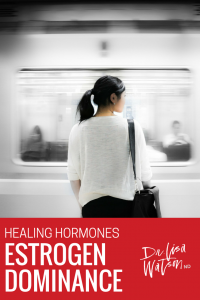 that causes heavy periods. Estrogen causes thickening of the uterine lining, while progesterone consolidates it, making it more welcoming for a fertilized egg. If estrogen is too high, or if progesterone is too low, you get a thicker lining and a heavier period. This hormone imbalance can occur at any point in a woman’s reproductive life, but is more common in her teens, in the years before menopause, and in women with PCOS, long menstrual cycles (more than 35 days), and women who are overweight or have high stress.
that causes heavy periods. Estrogen causes thickening of the uterine lining, while progesterone consolidates it, making it more welcoming for a fertilized egg. If estrogen is too high, or if progesterone is too low, you get a thicker lining and a heavier period. This hormone imbalance can occur at any point in a woman’s reproductive life, but is more common in her teens, in the years before menopause, and in women with PCOS, long menstrual cycles (more than 35 days), and women who are overweight or have high stress.
Other Causes of Heavy Periods
One of the more common causes for heavy bleeding that I see in my practice is uterine fibroids. The most common benign tumour of the female reproductive tract, fibroids occur in up to 60% of women, with black women impacted more than any other race. Fibroids are known to cause seriously heavy periods, with a lot of women diagnosed due to their exhaustion and startlingly low iron levels (a consequence of all that blood loss).
Heavy bleeding may also be a consequence of an undiagnosed clotting disorder. If your body can not form clots during your period, your period flow may be heavier and faster than desirable. Bleeding disorders can also cause heavy periods.
Polyps in the uterine lining (endometrial polyps), adenomyosis, IUDs, some medications (anti-inflammatories, hormone medications, and blood thinners), and uterine cancer can also lead to heavy periods.
How Do I Know If My Period is Heavy?
Whenever a woman asks me this I usually give a sassy answer like “Oh, you’d know.” And in a lot of ways, that is true. I’ve never doubted that my periods can be very, very heavy. But if you need a way to confirm your suspicions these are the criteria I use:
- Do you have to change your pad or tampon less than every 1-2 hours?
- Do you ever “double up”, using more than one form of period protection (tampon or pad) at one time?
- Do you have to get up in the night to prevent overflow?
- Have you ever experienced “flooding” where the blood flow feels almost uncontrollable or like you are peeing?
- Do you pass blood clots that are larger than a nickel?
- Does your period cause significant fatigue, exhaustion, or shortness of breath?
Answer yes to any of these, and the answer is likely that you do have heavy periods.
Natural Management of Heavy Periods
Ultimately, the best way to treat heavy periods is to identify why they are happening. As most heavy periods are due to hormone imbalances, fibroids, adenomyosis, or PCOS, then the treatment is different depending on what the cause is!
There are a few things that I talk about with just about every heavy menstruator in my practice, and I’ll briefly touch on them here.
Vitamin A – deficiency in vitamin A is known to cause heavier periods. When we don’t have enough of this nutrient it impairs enzyme activity and hormone production in our ovaries. It can be used to treat heavy periods in many women. As it is a fat soluble nutrient, levels of vitamin A can accumulate over time, so I don’t recommend using it at high doses without supervision from your naturopathic doctor.
B Vitamins – your body can not detoxify and eliminate estrogen without adequate B vitamins in your liver. If you can’t clear the estrogen, it can accumulate and lead to imbalances in hormone levels. A simple B complex can provide everything that you need.
Vitamin K – essential in the production of clotting factors, vitamin K can be incorporated into any plan that involves heavy bleeding as a way of slowing excess blood loss. Chlorophyll is an excellent source of vitamin K, so green juices may be all you need to get your levels up.
Chaste tree – an amazing botanical, chaste tree is used for many different hormone imbalances in women. Heavy periods, lack of ovulation, and irregular cycles are some of the imbalances that respond best to chaste tree.
Astringent botanicals – a class of plant medicines, rather than individual plants, the astringents are used during a period to try and slow the heavy flow. They are used in many effective herbal formulas to reduce blood loss and prevent anemia. The best known ones are yarrow, ladies’ mantle and cranesbill.
Bioidentical hormones – if a hormone imbalance is identified as the cause of heavy periods, there may be no more effective treatment than bioidentical hormones. Typically progesterone therapy alone is used, to provide the stabilizing effects of progesterone on the uterine lining and prevent overstimulation by estrogen. It is extremely well tolerated and may be the most effective treatment for some women, especially those during perimenopause.
A Success Story
I may be my best example of a success story in treating heavy periods. Gone are the days when I would soak through a tampon, pad, and my jeans (at a music festival no less.) Now I can count on my periods to be more manageable, with a heavy day, but no more jaw-dropping, exhaustion inducing, heavy periods occur for me.
If you need help putting together a plan for your heavy periods, I am here for you. Book in a time for us to chat, you can tell me your story and I can see if I can help.
Disclaimer
The advice provided in this article is for informational purposes only. It is meant to augment and not replace consultation with a licensed health care provider. Consultation with a Naturopathic Doctor or other primary care provider is recommended for anyone suffering from a health problem.


